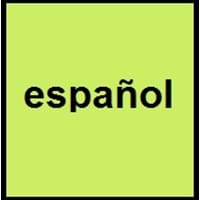Countries
Angola, Brazil, Cape Verde, East Timor, Equatorial Guinea, Guinea-Bissau, Macau, Mozambique, Portugal, São Tomé and Príncipe
Andora, Argentina, Aruba, Australia, Belize, Bolivia, Brazil, Canada, Chile, Colombia, Costa Rica, Cuba, Dominican Republic, Ecuador, El Salvador, Equatorial Guinea, France, Gibraltar, Guatemala, Honduras, Jamaica, Latvia, Luxembourg, Mexico, Morocco, Namibia, Netherlands Antilles, New Zealand, Nicaragua, Norway, Panama, Paraguay, Peru, Philippines, Puerto Rico, Russia, Spain, Sweden, Switzerland, Trinidad and Tobago, Turkey, United Kingdom, United States of America, Uruguay, Venezuela, Western Sahara
National Language
Portugal
Spain
Second Language
United States of America
Andora, Aruba, Australia, Austria, Belgium, Belize, Brazil, Bulgaria, Canada, Denmark, France, Germany, Ireland, Israel, Italy, Jamaica, Luxembourg, Morocco, Netherlands, Netherlands Antilles, New Zealand, Philippines, Poland, Portugal, Romania, Russia, Slovenia, Switzerland, Trinidad and Tobago, Turkey, United Kingdom, United States of America, US Virgin Islands
Speaking Continents
Africa, Asia, Australia, Europe, South America
Africa, Asia, Europe, North America, South America
Minority Language
Australia, Daman and Diu, France, Germany, Goa, Italy, Japan, United States of America
Brazil, France, Germany, Italy, Japan, Morocco, United Kingdom
Regulated By
Academia Brasileira de Letras (Brazilian Literary Academy), Academia das Ciências de Lisboa, Classe de Letras
Asociación de Academias de la Lengua Española
Interesting Facts
- Portuguese language has absorbed many words from French, Italian, Arabic and also from indigenous South American and African languages.
- The first written document in Portuguese language was found in the 12th century.
- One of the world's most phonetic language is Spanish.
- Up to the 18th century, Spanish was diplomatic language.
Similar To
Spanish and Galician Languages
French Language
Alphabets in
Portuguese-Alphabets.jpg#200
Spanish-Alphabets.jpg#200
Writing Direction
Left-To-Right, Horizontal
Left-To-Right, Horizontal
Thank You
obrigado
Gracias
How Are You?
Como você está?
Cómo estás?
Good Night
boa noite
Buenas Noches
Good Evening
boa Noite
Bonne soirée
Good Afternoon
boa Tarde
Buenas Tardes
Good Morning
bom Dia
Buenos Días
Please
Por Favor
Por Favor
I Love You
Eu te amo
Te Quiero
Excuse Me
desculpe me
Discúlpeme
Dialect 1
Brazilian Portuguese
Mexican Spanish
Where They Speak
Brazil
Mexico
Dialect 2
European Portuguese
Cuban Spanish
Where They Speak
Portugal
Cuba
Dialect 3
Daman and Diu Portuguese creole
Puerto Rican Spanish
Where They Speak
Daman and Diu
Puerto Rico
Native Name
Português
Español
Alternative Names
Português
Castellano, Castilian, Español
French Name
portugais
espagnol; castillan
German Name
Portugiesisch
Spanisch
Pronunciation
[puɾtuˈɣeʃ], [poʁtuˈɡes]
[espaˈɲol], [kasteˈʎano]
Ethnicity
Portuguese people or portugueses
Not Available
Origin
3rd Century
210 BC
Language Family
Indo-European Family
Indo-European Family
Branch
Not Available
Not Available
Early Forms
Medieval Galician
Old Spanish and Spanish
Standard Forms
Portuguese
Pluricentric Standard Spanish
Signed Forms
Signed Portuguese
Signed Spanish
Scope
Individual
Individual
ISO 639 6
Not Available
Not Available
Glottocode
port1283
stan1288
Linguasphere
51-AAA-a
51-AAA-b
Language Type
Living
Living
Language Linguistic Typology
Subject-Verb-Object
Subject-Object-Verb
Language Morphological Typology
Not Available
Fusional, Synthetic
Portuguese and Spanish Greetings
People around the world use different languages to interact with each other. Even if we cannot communicate fluently in any language, it will always be beneficial to know about some of the common greetings or phrases from that language. This is where Portuguese and Spanish greetings helps you to understand basic phrases in Portuguese and Spanish language. Portuguese word for "Hello" is Olá or Spanish word for "Thank You" is Gracias. Find more of such common Portuguese Greetings and Spanish Greetings. These greetings will help you to be more confident when conversing with natives that speak these languages.
Portuguese vs Spanish Difficulty
The Portuguese vs Spanish difficulty level basically depends on the number of Portuguese Alphabets and Spanish Alphabets. Also the number of vowels and consonants in the language plays an important role in deciding the difficulty level of that language. The important points to be considered when we compare Portuguese and Spanish are the origin, speaking countries, language family, different greetings, speaking population of these languages. Want to know in Portuguese and Spanish, which language is harder to learn? Time required to learn Portuguese is 24 weeks while to learn Spanish time required is 24 weeks.





